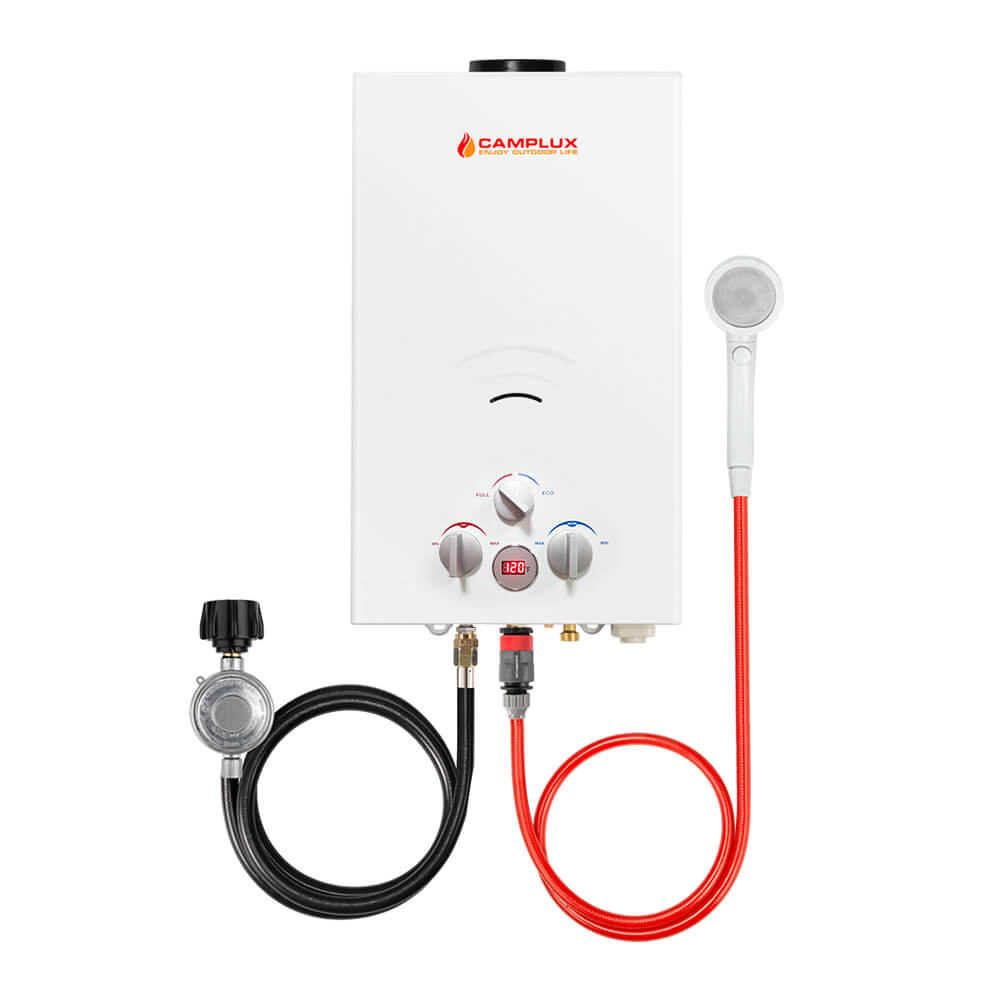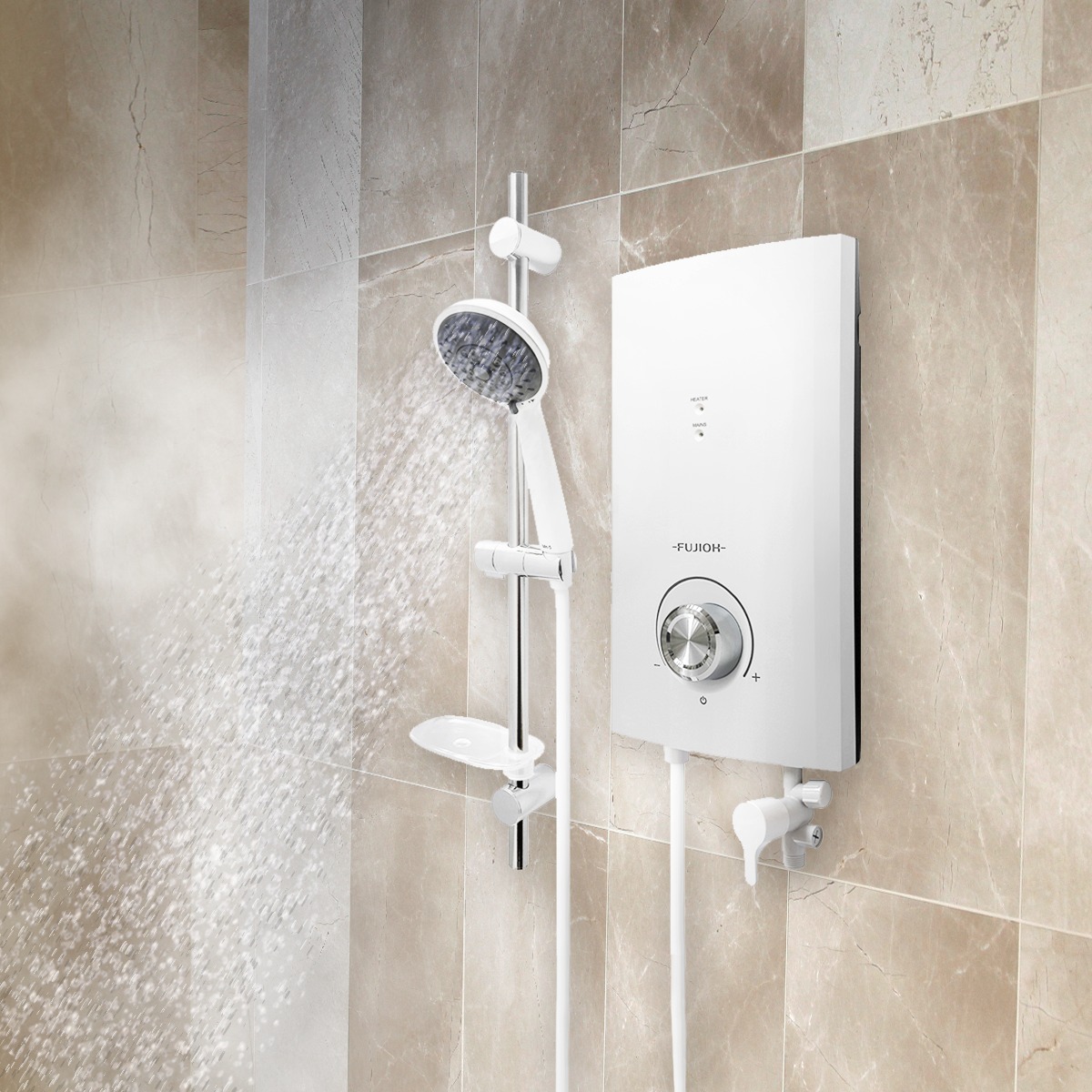The content in the next paragraphs in relation to Pros and Cons of Tankless Water Heater is immensely intriguing. Don't skip it.

In a globe where benefit and efficiency preponderate, it's no surprise that home owners are regularly on the lookout for smarter ways to handle their home's energy usage and convenience. One advancement that has progressively obtained popularity is the tankless water heater. However just what makes these systems stick out from the conventional tank-based designs a lot of us grew up with? Let's dive in and check out the benefits of tankless water heaters, assisting you choose if it's time to make the switch in your house.
Intro
Picture this: you step into the shower after a long day, expecting a calming waterfall of warm water, only to be greeted by icy droplets since the last individual utilized it all up. Sound familiar? Conventional water heaters store a fixed amount of hot water, meaning you go to the grace of that storage tank's supply. Tankless systems, on the other hand, heat water as needed. Say goodbye to running out mid-shower, say goodbye to fumbling with routines simply to make sure hot water is offered.
Understanding Tankless Hot Water Heater
What Are Tankless Water Heaters?
Tankless water heaters, occasionally known as on-demand or immediate hot water heater, supply hot water only as it's required. Rather than storing gallons of pre-heated water, these systems kick right into action the moment you turn on the tap. Water goes through a warm exchanger, heating up in real-time, suggesting you get a nonstop flow of hot water without the demand for a large container resting idly by.
How Do They Differ from Traditional Equipments?
Typical heating units hold a reservoir of warm water, using energy to maintain that storage tank at a consistent temperature level. Tankless devices get rid of the standing supply, minimizing squandered power and the cumbersome footprint of a big cyndrical tube. Essentially, you're upgrading from a "accumulation" attitude to a "made-to-order" strategy.
Common Kinds Of Tankless Systems
Tankless hot water heater generally come in two selections: gas and electrical. Gas versions tend to supply greater flow rates, ideal for bigger families, while electric versions commonly offer smaller homes and are commonly easier to mount. Additionally, some systems are created for point-of-use (serving one fixture) while others can manage the whole home's warm water demands.
Key Advantages of Tankless Hot Water Heater
1. Endless Warm Water Supply
Ever before needed to set up showers so everyone obtains their reasonable share of warm water? With tankless, that becomes a thing of the past. As long as the heating system's flow capability isn't gone beyond, you can take back-to-back showers without turning into a popsicle.
2. Energy Performance and Cost Financial Savings
Say goodbye to heating up a titan tank's worth of water and maintaining it cozy all day. Tankless heating systems reduce standby power losses, which can decrease energy bills. While the first price may be higher, the lasting savings frequently warrant the investment.
3. Space-Saving Style
If your home is short on storage space, eliminating the cumbersome container liberates useful area. Tankless units are small and can usually be placed on wall surfaces, tucked away in corners, or set up in tight utility storage rooms without having all to oneself the whole room.
4. Longer Lifespan
A properly maintained tankless hot water heater can outlast its tank-based relative. Standard storage tanks might last 10-15 years, while tankless versions can maintain chugging along for twenty years or even more, making them a strong investment in time.
5. Improved Water Quality
Storing water in a tank can sometimes cause debris accumulation or a somewhat "off" preference. With tankless systems, fresh water is heated on the spot, minimizing the possibilities of sediment build-up and possibly using cleaner-tasting water.
Factors to consider Prior To Switching
Though the benefits are engaging, it's a good idea to think about a few factors prior to totally devoting.
Preliminary Investment Costs
Tankless heating systems commonly include a higher ahead of time price tag. In between the unit itself and possible setup alterations, the first expense could offer you sticker shock. However keep in mind to view it as a long-term investment.
Installment Needs
Relying on your home's framework, you may need additional electrical capacity or gas line upgrades. Ensure you understand the installment needs and consult with a specialist to prevent shocks.
Examining Your Home's Water Use Patterns
If your home all at once uses several components with high warm water demand, make certain the system's circulation rate satisfies your demands. Knowing your usage patterns helps you pick the ideal dimension and kind of tankless heater.
Upkeep and Treatment Tips
Tankless systems are reasonably low maintenance, but they aren't set-it-and-forget-it appliances.
Regular Cleaning and Descaling
Hard water minerals can develop in the warm exchanger, affecting efficiency. Regular descaling (frequently recommended yearly) keeps the device performing at peak performance.
Annual Professional Examinations
A yearly checkup from a professional ensures small concerns are caught early. They'll assess the device's efficiency, seek leakages, and aid maintain ideal efficiency.
Making Sure Appropriate Air Flow
For gas models, correct ventilation is essential to safely eliminate exhaust gases. Make certain venting systems are tidy and correctly installed to prevent any kind of prospective safety and security hazards.
Contrasting Different Brands and Designs
Not all tankless hot water heater are produced equivalent.
Researching Trusted Makers
Try to find reliable brands with a history of producing quality devices. A trustworthy supplier typically gives much better customer assistance and longer warranties.
Reading Testimonials and Individual Comments
Individual evaluations and feedback from neighbors or buddies that have gone tankless can supply beneficial understandings. Often, real-life experiences can be extra informing than advertising pamphlets.
Setup: DIY or Specialist?
While some homeowners enjoy tackling projects themselves, tankless setup may not be the best time to burst out the toolbox.
Pros and Cons of Do It Yourself Setup
A do it yourself install can conserve cash, but it features dangers. Wrong installment can result in inadequacy or safety and security issues. If you come in handy and have experience, it might be practical-- however wage care.
When to Call a Specialist Plumbing
For many, calling a professional makes certain everything's done appropriately. A specialist plumbing professional recognizes neighborhood codes, sizing demands, and venting criteria, decreasing the danger of accidents.
Making the most of Effectiveness
You have actually purchased a tankless device-- now maximize its effectiveness.
Optimal Temperature Setups
The majority of people establish their devices in between 120-140 F. Adjusting the temperature can improve comfort and cost savings. Experiment to discover a wonderful place that does not waste power.
Coupling With Low-Flow Fixtures
Intend to extend your device's capacities? Take into consideration installing low-flow showerheads and taps. They lower water use, enabling your tankless system to supply a consistent stream of hot water without straining.
Ecological Effect
Tankless water heaters line up with greener living goals.
Reduced Carbon Impact
By using much less power and just heating water as needed, tankless systems can reduce your home's carbon impact, lowering your environmental effect.
Preserving Natural Resources
Less power consumption and less wasted warm water translate into fewer natural deposits being made use of, an environmental win-win.
Who Profits The Majority Of from Tankless Heating units?
The elegance of tankless heating systems is that they can suit a variety of households.
Large Households vs. Single Passengers
Big households might love the endless warm water supply, while solitary passengers value the power savings from not heating an entire tank for simply a single person's morning shower.
Homeowners with Minimal Area
If your home is short on square video footage, losing the large tank frees up space for various other fundamentals-- or maybe just much more elbow room.
Eco-Conscious Consumers
Going tankless aligns with eco-friendly values, ensuring you're not wasting energy or sources.
Future Patterns in Tankless Water Heaters
The world of home devices is ever-evolving, and tankless water heaters are no exemption.
Smart Home Combination
Picture adjusting your hot water heater's temperature by means of an app or getting upkeep informs on your phone. As smart home technology advances, we'll see even more connection and benefit.
Innovations in Innovation
R&D is regularly boosting heat exchangers, making systems a lot more reliable and resilient. Future designs could be also quieter, extra compact, and better matched for differing climates.
Final thought
Selecting a tankless hot water heater is greater than simply updating your home's warm water system; it's purchasing long-term comfort, energy performance, and a greener lifestyle. By considering your house's water usage, being mindful of installment demands, and committing to routine maintenance, you can take pleasure in a stable stream of warm water without the baggage of a large tank. As innovation evolves, you can eagerly anticipate also smarter, more efficient tankless remedies that not only make your life simpler however likewise profit the earth.
Why You Should Consider a Tankless Water Heater for Your Home
Energy Efficiency and Cost Savings
Tankless water heaters, also known as on-demand water heaters, heat water only when needed. This means they don't waste energy keeping a tank of water hot constantly. This efficiency translates into substantial cost savings on your monthly energy bills.
Endless Hot Water Supply
One of the significant advantages of tankless water heaters is their ability to provide a continuous supply of hot water. Traditional tank water heaters have a limited capacity and can run out of hot water, especially during peak usage times. In contrast, tankless water heaters can provide an endless stream of hot water, making them ideal for larger families or homes with high water usage.
Space-Saving Design
Tankless water heaters are compact and take up significantly less space compared to traditional tank heaters. They can be installed on walls, under cabinets, or even outside, freeing up valuable space in your home. This makes tankless water heaters a great option for smaller homes or properties with limited space for a traditional water heater.
Longer Lifespan and Lower Maintenance
Tankless water heaters typically have a longer lifespan compared to traditional tank heaters. They can last up to 20 years or more with proper maintenance. Additionally, tankless systems are designed with replaceable parts, which can extend their lifespan further and reduce long-term maintenance costs.
Environmentally Friendly
Reducing energy consumption not only saves you money but also benefits the environment. Tankless water heaters contribute to a smaller carbon footprint by using less energy to heat water. Their energy efficiency and ability to minimize standby heat loss make them an eco-friendly choice for environmentally conscious homeowners.
Customized Temperature Control
Tankless water heaters offer precise temperature control, allowing you to set the desired temperature to meet your specific needs. This level of customization ensures you always have water at the perfect temperature for your comfort and usage requirements.
https://beantownservices.com/blog/consider-tankless-water-heater-for-your-home

Hopefully you liked our excerpt on Pros and Cons of Tankless Water Heater. Thanks a ton for taking a few minutes to browse our posting. Kindly take the opportunity to distribute this page if you appreciated it. Many thanks for going through it.
More Details